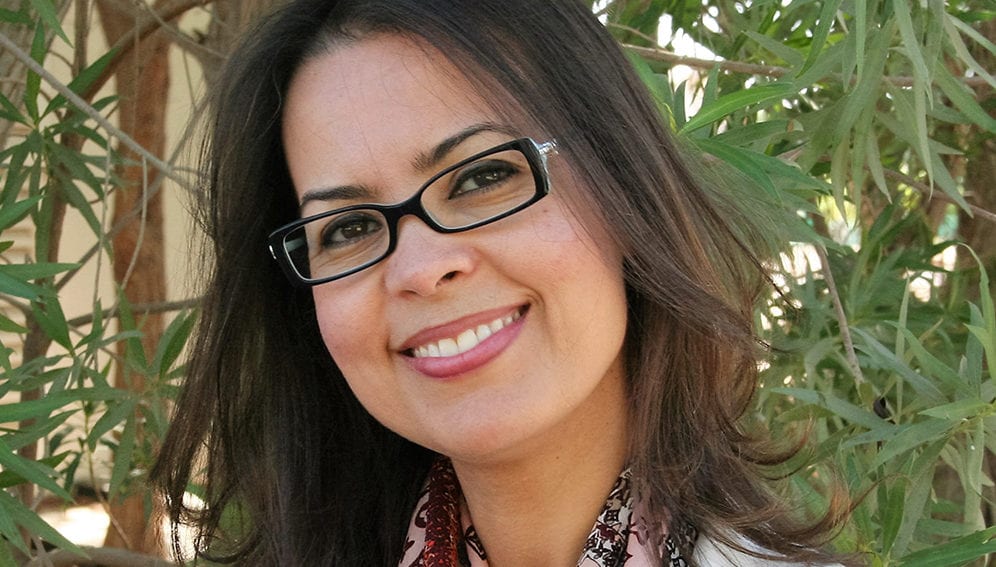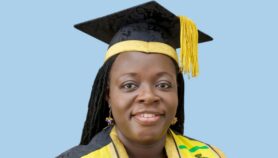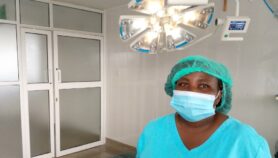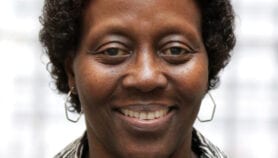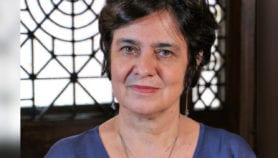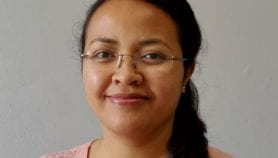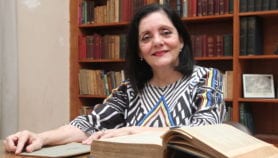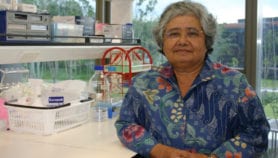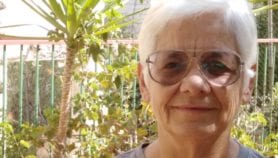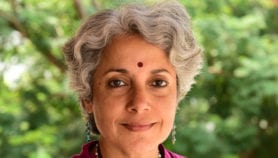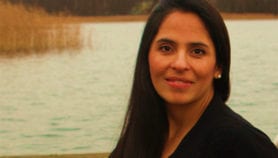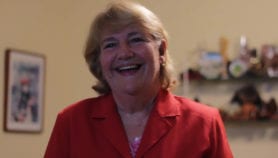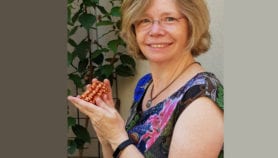By: Rasha Dewedar
Send to a friend
The details you provide on this page will not be used to send unsolicited email, and will not be sold to a 3rd party. See privacy policy.
Ismahan Elouafi is a biologist by chance, but a geneticist by choice. Trained as a fighter pilot, she has Ph.D. in genetics from the University of Cordoba in Spain and has worked in Japan, Morocco, and Canada.
Since 2012, Elouafi is the director general of the International Center for Biosaline Agriculture (ICBA) in Dubai. She has received numerous awards for her work, including the Excellence in Science award from the Global Thinkers Forum and the National Reward Medal from Morocco’s King Mohamed VI. Elouafi was ranked among the 20 most influential women in Islamic science by Muslim Science magazine, and among the 100 most powerful women in science by Middle East magazine.
During her interview with SciDev.Net, Elouafi spoke about her random journey into science and her determination to keep her work-life balance.
Why did you choose a career in science?
First of all, going into agriculture was pure chance. I was in a military school, called Aviation high school, in Morocco. All the examinations were geared toward turning us into fighter pilots. By the time we went through the process, most of the universities in Morocco had closed their application period. One of the few schools that were still open was agriculture, and that was how I got into agriculture.
However, specialising in genetics was my choice. I was completely taken by it and I really wanted to continue my career with plant breeding and genetics. From there, after I had finished my master’s degree, I had different opportunities to pursue my Ph.D. I chose on purpose to do my Ph.D. within an international project that was funded by Australia and was managed by two international centres, the International Maize and Wheat Improvement Center (CIMMYT) and International Center for Agriculture Research in Dry Areas (ICARDA).
So that’s what really got me into the development sphere. In all honesty, what really retained me in the whole thing is the fact that all the research was international and run by international centres providing know-how and genetic materials to the developing world.
What choices did you have to make to shape your career?
I think all of us come to a crossroad at some point. Then you have to choose, and you have to trust your guts, even if it looks like the less favourable option. You need to have a long-term vision and go with what suits your life at that moment.
In 2007, I decided to go to Canada for personal reasons. Canada was an opportunity to start a new life, but it also meant that I had to start from scratch, almost like I was a new Ph.D. student.
However, Allah was so good to me. I got a great opportunity at McGill University to teach students at master’s degree level and in the final year of their bachelor’s degree. It was a really interesting experience, and it gave me the understanding that it was good to go somewhere else. I got to know the agriculture cycle in Canada, which is quite different from agriculture in the Mediterranean basin.
Being in Canada also gave me the opportunity to work in a federal university system, and I started to think that I may not be the best fit for academia but felt more comfortable in research institutes. This is how I moved to the Canadian Food Inspection Agency; and eventually to the International Center for Biosaline Agriculture in Dubai.
So, throughout the years and through different positions, you get to collaborate with different people. There will always be people who are either subordinates, peers or bosses who will give you a hand and help you climb up to pursue your career.
Who have been the best support throughout your journey?
I was fortunate to have the right family. I had the best parents and sisters, who encouraged me to be very ambitious and to pursue things further. My mom especially has been very supportive. She helped me throughout the years by looking after my kids, which allowed me to organise my life.
Beyond the family, there is also your working environment. People can help you reduce the burden on your shoulders, to take care of stuff or tasks. I think I was blessed by having this at my job in Dubai, at ICBA and the jobs I had before in Canada.
Above all, I think I have been always passionate, so whatever I do I really commit myself to it. My job has been always a passion. I never stayed in a place that I didn’t like.
The inevitable question: how have you achieved work-life balance?
I have two daughters, Sorine and Sophia. They are absolutely my priority number one. So, how do I do my job with two daughters? I call it having a support system. It’s having people around you who understand the complexity of your situation, and know that your job is very demanding. They can help you out.
Without that, you either have to drop your family or drop your work, even though both of them are important in all women’s lives. Therefore finding the balance between them is extremely important.
One thing I tell my friends is that the most difficult thing to deal with is the fear of not giving enough on both sides. I fear to provide less to my kids than the mothers who do not work. But you have to deal with it, you just have to accept the situation and make sure that the kids are a priority. Often, you’ll have to be away for work, but you let them know that this does not mean they are not a priority anymore. When you come back, be fully, 100% with them.
What stands between women and leadership?
I don’t think we can afford to have only men in leadership positions anymore. Throughout history, it has been shown that female leadership is different from men’s in many positive ways. So, if we want to bring out the full potential of humankind, we should be conscious of those differences and push for gender equality. It’s not so much equality of positions, it’s much more about equality of opportunities.
We should also provide women with freedom of choice. With this, eventually society will develop around equal opportunities, and women will feel much more in control of their destiny and not have to choose anymore between having a career and being a mother.
On the challenges and obstacles that might hold back some women from getting to top managerial positions, there are many common challenges between the Middle East and the West, but also some cultural differences. In terms of common challenges, all mothers feel protective towards their children and want to give them a lot of love and time. This can get in the way for some women wishing to attain high-level positions.
So, having more women in leadership positions will provide us with an opportunity for both genders to develop their careers side by side, and to choose their destiny and their options in total freedom.
This piece was produced by SciDev.Net’s Middle East & North Africa desk.


